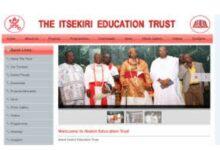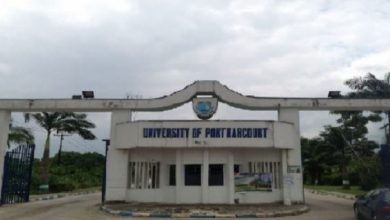
Factors Affecting Education in Nigeria
Factors Affecting Education in Nigeria- Nigeria’s educational system has received a lot of attention in recent years, with stakeholders and outside observers voicing worry about the quality of education in the nation. Nigeria is no exception when it comes to the importance of education for national development. The level of economic and social growth of a nation is directly influenced by its capacity to provide high-quality education to its people.15 Best Industries in Nigeria
Read Also: 10 Factors Affecting Immunization In Nigeria
👉 Relocate to Canada Today!
Live, Study and Work in Canada. No Payment is Required! Hurry Now click here to Apply >> Immigrate to CanadaRegrettably, a number of issues have hampered Nigeria’s education system, preventing it from progressing. These issues vary from a lack of proper finance and facilities to a teacher shortage and systemic corruption. In this context, it is critical to look at the variables influencing Nigerian education and how they influence the quality of instruction. Understanding these elements makes it possible to design solutions and put policies into place that would enhance Nigeria’s educational system and help the nation meet its development objectives. The significance of education in Nigeria cannot be over- emphasized, as it equips people with the abilities, information, and morals they need to excel in both their personal and professional life.
Read Also: 10 Factors Affecting Labor Market in Nigeria
What is Education?
The process of learning the information, abilities, values, and attitudes necessary for one to contribute successfully to society is known as education.Factors Affecting Education in Nigeria
It is a continuous process that happens throughout the course of a person’s life and includes both official and informal learning opportunities.
History of Education in Nigeria
Pre-colonial times, when traditional schooling predominated, are where Nigeria’s educational history begins. Western education was introduced with the onset of colonialism and progressively rose to prominence. The educational system in Nigeria today is diversified and includes official, informal, and non-formal education.
Types/Forms of Education in Nigeria
- Formal Education
The government regulates this organized kind of education that takes place in a classroom.
- Informal Education
This kind of instruction is unstructured and takes place outside of traditional educational settings.
- Non-formal Education
Outside of the conventional educational system, this flexible, learner-centered style of education is offered.
👉 Relocate to Canada Today!
Live, Study and Work in Canada. No Payment is Required! Hurry Now click here to Apply >> Immigrate to Canada- Vocational Education
Vocational education focuses on transferring practical information and skills that prepare students for the workforce.The Ultimate Guide to Finding the Best Stock Photos for Your Blog
- Technical Education
This is geared on transferring technical knowledge and abilities that equip students for certain jobs.
- Adult Education
This kind of instruction is intended for those who did not have a formal education during their formative years.
- Special Needs Education
This is education designed specifically for students with physical, mental, or learning challenges.
Read Also: Factors Responsible for Unethical Business Behavior in Nigeria
Factors Affecting Education in Nigeria
-
Inadequate education funding
The Nigerian government has persistently underpaid the education sector, which has led to a lack of supplies for schools, subpar facilities, and a paucity of trained instructors. This has a detrimental effect on the nation’s educational system.
-
Lack of proper infrastructure
The lack of proper infrastructure including classrooms, libraries, labs, and computers, plagues many schools in Nigeria. This has an impact on educational quality and restricts students’ options.
-
Lack of competent teachers
Due to a high pupil-to-teacher ratio in many schools, Nigeria is experiencing a teacher shortage that is negatively affecting the quality of education offered. This is made worse by the nation’s teachers’ unfavorable working conditions and lack of incentives.
-
Corruption in the Educational System
Corruption is pervasive in Nigeria’s educational system, which causes money to be mismanaged, grades to be sold, and ineligible applicants to be admitted. This damages the reputation of the educational system and lowers the level of instruction delivered.JAMB Portal
-
Conflict and Insecurity
The Nigerian education system has been disrupted as a consequence of the closure of schools and the relocation of pupils and staff due to conflict and insecurity. Both the quantity and quality of students who can access school have suffered as a result of this.
-
Socio-economic Factors
In Nigeria, socio-economic issues including child labor, gender discrimination, and poverty have a big influence on schooling. Due to the high expense of education, many children from low-income households are unable to attend school, and gender discrimination and child labor restrict prospects for both girls and boys.
-
Religious and Cultural Influences
Religious and cultural influences have an impact on education in Nigeria. Certain cultures and religions put little importance on education, which leads to poor school enrolment. However, some religious organizations manage schools that are not subject to government oversight, which results in a lack of uniformity in the educational standards offered.InformationGuideNigeria
-
Political Unrest
Education has suffered as a result of political unrest in Nigeria. A lack of continuity in the educational system as a consequence of shifting government interests and policies has resulted in uncertainty and a decrease in the quality of education offered. The politicization of education has also resulted in the hiring of under qualified people for important roles in the educational field, thus degrading the quality of education offered.
Read Also: 10 Factors Affecting Labour Force
Importance of Education in Nigeria
- Education is crucial for the development of human capital, which is important for both economic expansion and development.
- Poverty Eradication: Education is a powerful instrument for eradicating poverty because it gives people the information and skills they need to be able to support themselves.
- National Unity: Education fosters national unity by exposing people to a variety of cultures, customs, and values.
- Technology advancement: Education is essential for this process because it gives people the information and skills they need to invent and develop new technologies.
- Health is improved as a result of education since it enhances knowledge of health-related problems and encourages healthy living.
- Gender Equality: Education supports gender equality by giving men and women the same chances to learn new things and develop their talents.NYSC Portal
- Political Stability: Education promotes political stability by giving people the information and abilities they need to take part in the democratic process.
- Education fosters environmental sustainability by increasing public understanding of the value of protecting the environment.200 Romantic Love Message
- Education helps people improve their social and cultural awareness by exposing them to other cultures, values, and beliefs.
- Global Competitiveness: Education encourages global competitiveness by giving people the information and abilities they need to participate in the world market.
Read Also: 10 Factors Responsible for High Cost of Food Items in Nigeria and Solutions
Conclusion
Nigeria is no exception when it comes to the importance of education for national development. To guarantee that everyone may benefit from education, the Nigerian government and other players in the field must give it top priority and deal with the problems it faces. It is impossible to overstate the significance of education in Nigeria since it has the power to influence the nation’s destiny.105 Good Morning Love Messages
The government must increase its education spending in order to provide Nigeria’s young the tools they need to thrive in both their personal and professional life, given the country’s expanding population and rising demand for education.
Education involves more than simply learning academic material; it also involves building leadership, problem-solving, and critical-thinking abilities. In order for people to be able to contribute to the growth of Nigeria, it is crucial that the educational system in that nation be built to provide them these abilities. To sum up, education is the key to releasing the potential of the Nigerian people and advancing the nation to new levels of prosperity and development.
Check JAMB Result
Check and Confirm: How much is Dollar to Naira






